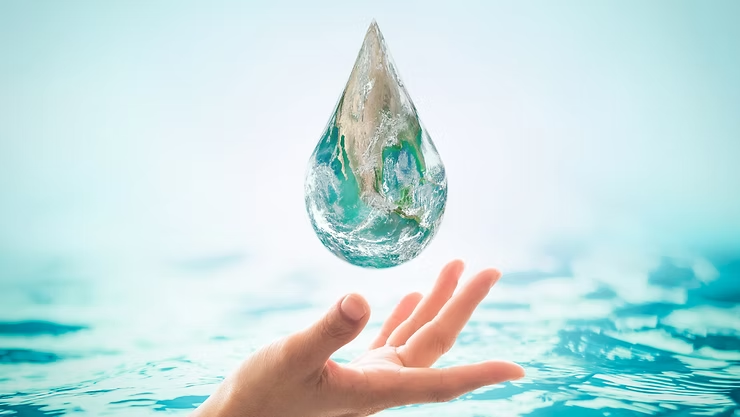Water Conservation: Simple Tips for a Sustainable Future
Water conservation is crucial in today’s world, where water scarcity is becoming a pressing issue. By implementing simple water-saving practices in our daily lives, we can reduce water consumption and promote a more sustainable lifestyle. Here are the top ten water-saving tips to help make a difference.
Key Takeaways
- Fix leaks and dripping faucets to prevent water wastage.
- Install water-saving fixtures in your home to minimize water usage.
- Take shorter showers and run full loads in dishwashers and washing machines.
- Water plants in the early morning or late evening to reduce evaporation.
- Use drought-tolerant plants and mulch in your garden to conserve water.
Why Water Conservation is Important
Water scarcity occurs when there is insufficient water to meet the needs of a population. It can lead to:
- Limited access to clean drinking water
- Reduced agricultural productivity
- Increased risk of droughts and wildfires
Conserving water ensures availability for future generations and protects ecosystems.
The Benefits of Conserving Water
- Save money: Lower water bills and energy costs.
- Protect the environment: Preserve natural resources and ecosystems.
- Reduce energy consumption: Less water use means less energy for treatment and distribution.
- Promote water security: Help ensure clean water access for all.
Indoor Water-Saving Tips
Fix Leaks and Dripping Faucets
- Repair leaks promptly—small drips add up to significant waste.
- Save water and reduce your water bill simultaneously.
Install Water-Saving Fixtures
- Upgrade faucets, showerheads, and toilets with water-efficient models.
- Reduce water usage without sacrificing performance.
Take Shorter Showers
- Set a timer or use a low-flow showerhead.
- Turn off water while lathering or shampooing.
Run Full Loads in Dishwasher and Washing Machine
- Maximize efficiency and save water by waiting until appliances are full.
Outdoor Water-Saving Tips
Water Plants in Early Morning or Late Evening
- Minimizes evaporation and allows water to reach roots effectively.
- Use a watering can or hose nozzle for precise watering.
Use Drought-Tolerant Plants
- Require minimal water and maintenance.
- Resistant to pests and dry conditions.
Mulch Your Garden
- Conserves moisture and reduces evaporation.
- Suppresses weeds and regulates soil temperature.
- Improves soil structure as mulch decomposes.
Collect Rainwater for Irrigation
- Set up a rain barrel or harvesting system.
- Use collected rainwater to irrigate plants sustainably.
Efficient Water Use in the Kitchen
Use a Dishpan for Washing Dishes
- Fill a dishpan with soapy water instead of running the tap.
- Reuse water for multiple rounds to conserve water.
Don’t Let the Faucet Run While Washing Vegetables
- Fill a bowl to rinse vegetables instead of running water continuously.
- Reuse rinse water for plants when possible.
Reuse Pasta Water for Plants
- Cool and strain pasta water before using it for plants.
- Avoid salted water, which can harm plants.
Thaw Frozen Food in the Fridge
- Reduces the need for running water while thawing food.
- Preserves food quality safely.
Bathroom Water-Saving Tips
Turn Off the Faucet While Brushing Your Teeth
- Save gallons of water daily with this simple habit.
Use a Low-Flow Showerhead
- Reduces water use without affecting your shower experience.
Don’t Use the Toilet as a Trash Can
- Prevent clogs, save water, and protect the environment.
Fix Leaky Toilets
- Repair leaks to prevent significant water loss.
Laundry Water-Saving Tips
- Wash full loads only.
- Use cold water whenever possible.
- Air dry clothes to save energy and water.
- Upgrade to an energy-efficient washing machine.
Smart Irrigation Practices
- Water lawns and gardens only when necessary.
- Adjust sprinklers to avoid watering sidewalks or driveways.
- Use timers for irrigation systems to conserve water.
- Consider drip irrigation for precise watering at plant roots.
Reduce Water Waste in Swimming Pools
- Cover your pool when not in use to prevent evaporation.
- Monitor and adjust water levels regularly.
- Maintain pool equipment to ensure optimal efficiency.
Conclusion
By implementing these water-saving habits, we can reduce consumption and protect this precious resource. Every drop counts! From fixing leaks to smart irrigation, small changes lead to a sustainable future.
Frequently Asked Questions
- Why is water conservation important? Preserves resources for future generations and protects ecosystems.
- Benefits? Lower water bills, energy savings, and environmental protection.
- How to fix leaks? Check for visible leaks, tighten connections, or replace faulty parts.
- Water-saving fixtures? Low-flow showerheads, dual-flush toilets, faucet aerators.
- Shorter showers? Set timers, turn off water while lathering, use low-flow heads.
- Full loads? Maximizes efficiency in dishwashers and washing machines.
- Water plants early or late? Reduces evaporation, allowing water to reach roots efficiently.
- Drought-tolerant plants? Thrive with minimal water, adapted to dry conditions.

